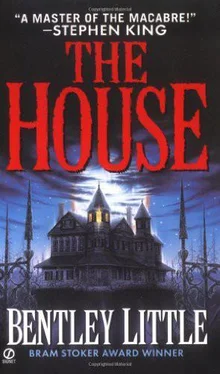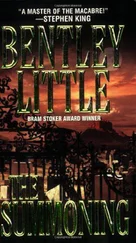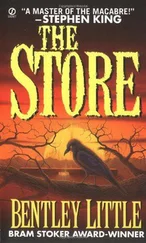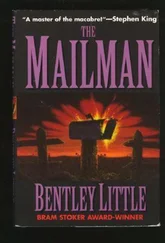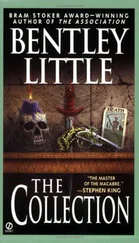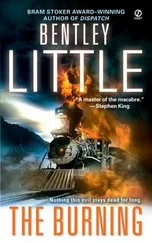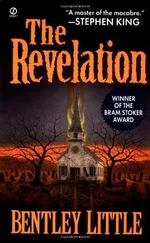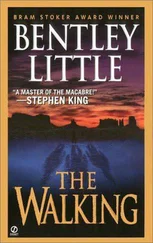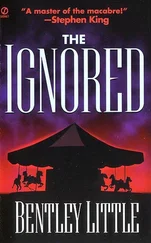But then . . .
Then it had gone too far.
Donna had been younger than him but far more knowledgeable, and as things progressed, she had attempted to entice him into perversity. The sex she'd suggested had been unnatural, the acts she wanted him to perform with her things he had never even imagined. It had frightened him and he had pulled away, but he could not remember what happened after that. His memory was hazy. Had she moved? Had they simply stopped being friends?
He couldn't recall.
But he had an erection even now, just thinking about it, and for the first time since he'd been a child, he allowed himself to remember what he and Donna had done.
He put down the bottle and the shot glass and walked out of the kitchen, down the hall to the bathroom.
He thought not only of what they'd done, but of what she'd wanted to do, of the perverted acts she'd wanted him to engage in, and he recalled the way the girl in the empty house had looked with the window behind her and the meeting of her thighs visible through the thin material of her dirty shift.
He imagined what she looked like without the shift.
Breathing heavily, he pulled down his pants, knelt before the toilet bowl.
He began to masturbate.
Stormy Roberta was waiting for him when he got home.
With a lawyer.
The two of them sat on the chairs opposite the coffee table, and Stormy had no choice but to set himself down on the couch. The chairs were higher than the couch, so the two of them looked down on him while he looked up at them. He had to smile. An old movie trick. A
visual metaphor. Place the good guys at a slightly higher angle so that there would be a subliminal sense of power and authority on their part, so that they were perceived to have the upper hand and the moral high ground.
It was probably the lawyer's idea.
This was entirely unexpected, completely out of the blue, but he pretended as though it was something he'd been anticipating, and he placed his briefcase on the shag next to the couch and smiled up at Roberta. "Did we have to bring the lawyers in at this stage?"
She frowned. "What the hell are you talking about?"
"Him." He nodded toward the lawyer, though he was suddenly unsure of himself.
"Mr. Reynolds? He's here," she explained patiently, "because the Finnigan brothers declared bankruptcy and you're one of their creditors."
"Is this a bad time?" the lawyer asked, looking from Roberta to Stormy.
Stormy shook his head tiredly. "No, it's fine." He found that he was a little disappointed Roberta was not trying to divorce him, and he tried to pay attention as Reynolds explained that the status of the downtown Albuquerque theater he'd bought with theFinnigan brothers with the intention of turning it into an art theater was now in limbo, but his mind kept wandering. He accepted the forms and folders given him, listened to his options, but figured he'd go over the details later at his leisure.
There were still questions as to whether, as a distributor, he was legally allowed to own a theater, and he'd remained a minority partner, owning forty-nine percent of the enterprise to theFinnigans ' fifty-one. There were a lot of cases pending before various courts that addressed this issue and he'd hoped to avoid it entirely, but apparently unless he could get another majority partner, he'd either have to jump in and buy the entire business or forfeit his interest in the project to the bankruptcy court and accept whatever they could get for the theater at auction.
His mind was still on divorce, though. Somehow, this false alarm seemed to have lent him the confidence he'd lacked until now. He realized, for the first time, that an end to the marriage was a realistic possibility. Before now, it had been an abstraction, a fantasy almost, and for some stupid reason he'd assumed that if there was going to be a divorce, it would be initiated by her.
But why?
He could start divorce proceedings himself. He could take an active role in this. Instead of passively waiting for something to happen to him, he could take the initiative and do it himself.
Reynolds stood, handed him a card. "I guess that concludes it. If you have any questions over the next few days, feel free to call."
"I'll talk to my lawyer," Stormy said, "and have him get in touch with you."
Reynolds nodded. "My phone and fax number are on the card."
Stormy saw the other man to the door, watched him get into his black Bronco, and waved good-bye. He shut the door and looked back toward Roberta, who was still standing next to the coffee table.
She stared at him. "You really thought I wanted a divorce?"
He nodded. "Yeah."
She said nothing, only nodded and walked into the kitchen, an unreadable expression on her face.
He drove down to Albuquerque the next day.
Overnight, he'd pretty much given up his dream of owning an art theater. It was an old dream anyway, concocted in L.A. during his college days, when such places were the hip spots for hip students to hang out. Times had changed, though, and cable TV and the multiplexes had pretty well killed off the independently owned art house. Today's viewers were simply not as willing to make the effort to leave their homes and take a chance on quirky, unknown films when they knew they could catch the movies on cable in six months.
Hell, more people saw art films on video today than had ever seen them in a theater.
But it was still depressing.
He pulled up in front of the building and got out of the car to take a last look around. Now that he was out of the project, divorced from the hopes and wishes connected with it, he could see that the idea had been a shaky one. The neighborhood surrounding the theater was not commercial but industrial, having shifted some twenty years ago when downtown retail businesses moved to a newer area of the city. Not the greatest part of town even in the daytime, at night it would be downright spooky to anyone living above the poverty line.
He stared up at the broken marquee and peeling, weathered facade. They'd purchased the building but had not yet started on any of the renovations. Not that there were going to be that many. Art theater patrons liked a dingy, slightly seedy low-tech ambience. It differentiated them from other moviegoers, imparted a feeling of exclusivity to the viewing experience, made them think they were intellectual because they were willing to endure hardship for their love of art.
Still, the building was not up to code and its deteriorated condition was a little too run-down even for the art crowd.
Stormy walked up to the front doors, unlocked and opened them. He was supposed to drop his keys off at the real-estate office, but he wanted to see his baby one final time before putting it up for adoption.
He walked into the lobby and immediately the hair on the back of his neck prickled. It was a physical sensation, a biologic response, not something originating in his mind. Some instinctive animal part of his nature sensed danger here, and though he would ordinarily put such a reaction down to stress or psychological factors and immediately dismiss it, this time he was not quite so ready to ignore his response.
He thought of what Ken had said about Tom Utchaca and his father, about what was happening on the reservation.
Once again, the idea of a living doll jogged his memory, but he couldn't quite recollect what in his past would provide a correlation.
Maybe there was a doll somewhere in the theater.
His goose bumps doubled, tripled, and he was tempted to walk out the way he'd come, drive straight to the real-estate office, and drop off the keys. Even with the front door open, the lobby was dark, its edges shadowed, and both the stairway to the balcony and the open door to the theater proper were pitch-black.
Читать дальше
